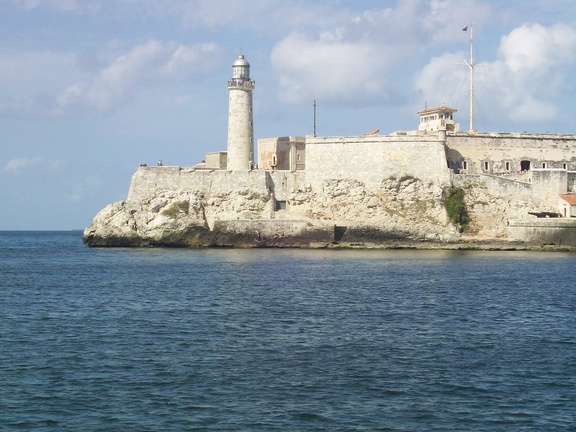Political grandstanding in US prevents economic opportunity in Cuba
- Submitted by: admin
- Havana
- United States
- Politics and Government
- 05 / 06 / 2010

Few people know that Cuba was recently the United States' largest rice export market, is the fifth-largest export market in Latin America for U.S. farm exports and holds $20 billion in trade with America over a three-year term.
Our economy could benefit mightily from better relations, yet we alienate this potential ally.
When I traveled to Cuba on a Congressional delegation recently, it became clear that the embargo is imprudent politically, economically and socially.
Everyone we met with -- U.S. and Cuban government officials, trade organizations, journalists, cultural attachés, foreign diplomats and rural farmers -- confirmed this point.
Politically, now that Latin America stands beside Cuba -- as evidenced by diplomatic reinstatements with holdouts El Salvador and Costa Rica, and the reintegration of Cuba into the Organization for American States and the Community of Latin American and Caribbean States -- the U.S. risks ruinous relations with countries that see the blockade as backward.
The U.S. is already marginalized: CLACS explicitly bars U.S. participation.
The impact of this Latin tack toward insularity is not insignificant. Consider grandstanding by Brazilian President Luiz Inácio Lula da Silva, who rebuffed Secretary of State Hillary Rodham Clinton's efforts to bring Brazil on Iran sanctions while courting Cuba's leadership.
Lula, capitalizing on Cuba's appetite for growth, proposed investments in industrial, agriculture and infrastructure projects, including ports and hotels, and an agreement with Brazil's oil company.
We will see more of this. The Cubans are seeking suitors. Like the Bank of the South, Latin America's attempt to wean countries off U.S. institutions like the World Bank, the longer we keep Cuba at arm's length, the more likely Brazil and others will take our place.
The longer we keep Cuba listed as a state sponsor of terrorism, an allegation roundly criticized by diplomats, the more we risk the credibility of our national security regime and reputation in the region.
Economically, the case for cooperation is even clearer. Despite the trade embargo, there is some engagement. Cuba continues to rely on U.S. agriculture. Since 2002, we have been Cuba's largest supplier of food and agricultural products, with Cuba purchasing more than $3.2 billion in products since 2001.
This agricultural reliance is in jeopardy, which puts American farmers at risk. In 2008, U.S. food imports to Cuba totaled $712 million, declined to $533 million last year and are declining this year.
Cuba, having witnessed strong economic growth in the early 2000s at 11 percent and 13 percent, is now struggling to make ends meet, slipping below 2 percent growth in 2009.
Beyond foodstuffs, other natural resources offer potential for partnership. The U.S. Geological Survey estimates that Cuba owns 9 billion barrels of untapped oil, along with 9 billion cubic meters of natural gas.
The Cuban government cites higher oil numbers, at 20 billion barrels. Either way, there's money to be made, and Cubans welcome participation from countries that can help them tap and market the oil. While the U.S. disengages, countries such as Brazil, Russia, Venezuela and China are talking. We are clearly missing investment opportunities.
Socially, Cubans emphatically embrace the cultural convergences between our countries. Their love of music, art, dance, history and architecture is ubiquitous, drawing 2.5 million tourists annually to Cuba, 800,000 of whom are Canadian.
If the travel ban were lifted, 2 million Americans are expected immediately, growing to 4 million. This is hardly surprising.
Havana retains the Caribbean's largest, oldest and best-preserved Spanish colonial architecture. The city's charm is intoxicating.
We should expand cooperation on education, medicine, science and sports through nonpolitical, people-to-people exchanges. President Barack Obama has the authority to return the rules for academic, scie
nce, religious and other "purposeful travel" so that exchange can flourish again. This is how we rebuild relations.
None of this negates the sobering negatives characterizing U.S.-Cuba relations. Cubans remain poor, irrespective of education (at nearly 100 percent literacy) or health care (everyone is covered, for everything).
The U.S. and Cuba are cautiously coordinating on areas of mutual interest, such as migration, counter-narcotics and disaster preparedness.
The U.S. must build on this sooner than later, before others opt in while we opt out.
Cuba is not the enemy. She may frustrate American proclivity for democracy promotion, but her behavior is nothing near as nefarious as that of certain U.S. allies elsewhere.
The time is now to engage. Cubans are increasingly confabbing about reform while we sideline ourselves from the conversation.
Rep. Mike Honda is a Democrat from California.
Source: www.huffingtonpost.com/
Comments